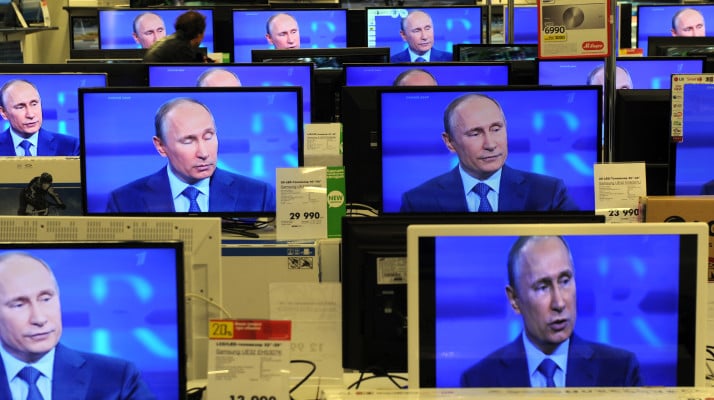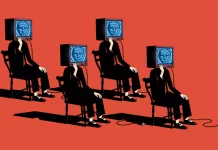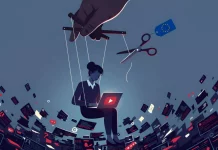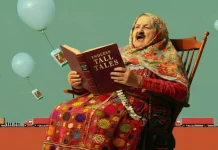
Early one morning a few weeks ago, my phone started to ring like crazy. Every few minutes, messages from colleagues all over the world flashed on the screen: “Is it true?”; “Did he really say that?”; “Can you confirm?”; “Will you go on air for us?” they asked. I was surprised, and confused — I was on vacation and had not recorded an interview that week at Radio France Internationale (RFI), where I currently work.
I took a deep breath and checked my Twitter and Facebook feeds. The website of the Russian TV station Zvezda had published a piece claiming Ukrainian Prime Minister Arseniy Yatsenyuk had told me on the record that Batkivshchyna party leader and former prime minister Yulia Tymoshenko was “constantly propositioning” him “to have a sexual relationship” with her.
The Zvezda staff — I wouldn’t go so far as to call them journalists — apparently had no qualms about making up their stories and had turned me into a French Oprah overnight. I immediately published a statement clarifying that I never recorded an interview with Yatsenyuk and asked RFI to release the same statement on our website. But the story had already taken on a life of its own and eventually I had no choice but to accept to be interviewed by the Russian independent media.
In a bid to enhance the credibility of its reports, Russian state media have started naming European journalists as sources in fabricated stories. Over the summer, I was surprised to read that my friend Luke Harding, a British journalist for the Guardian, had supposedly written a book entitled “Nobody but Putin.” A Russian publisher had released it without his knowledge or permission.
“I was amazed when a Russian friend told me he’d found my ‘new’ work in a Moscow bookshop,” he told me recently. “The publisher had ripped off [my previous book] ‘Mafia State,’ changed the title, and censored all material embarrassing to the Kremlin. The chapters on Alexander Litvinenko’s murder, harassment by Putin’s spy agencies, and Ukraine had all vanished. Bizarrely, what I wrote about Putin’s fortune was still there.”
Back then, I could hardly have imagined that I would soon find myself in the same unfortunate position: appearing to support the ideological fantasies disseminated by the country’s propaganda machine.
* * *
Now that attention has turned to Syria, the war in the Donbas region is no longer Russia’s priority. But the average Russian TV viewer wouldn’t know this based on national coverage of Ukrainian events. State-run TV stations are compelled to keep talking about Ukraine; but rather than focus on the seemingly frozen military conflict, they turn their attention elsewhere — to the Ukrainian government, for example. The motivation for the fake Yatsenyuk interview “story” was part of that logic. It aired just three days before Ukraine’s local elections.
In principle, the mechanism is an effective one: Zvezda staff publish a fake story on their website and quote a Western journalist, inspiring, in theory, the readers’ confidence.
Citing a radio interview as a source is another “clever” trick. If they are asked for evidence, they can say the interview was broadcast and the transcript simply not posted on the radio station’s website.
After a few hours, Zvezda finally changed the initial piece and provided a link to the purported source, an unknown website called Zhivaya Kuban (Kuban is a region in southern Russia).
A colleague from Radio Liberty’s Moscow office suggested that the “attack” could have been executed in retaliation for my recent piece on the most common mistakes Western journalists make when interviewing Russian President Vladimir Putin.
No one ever pushed the Russian leader in an interview, I had argued, because they were too easily charmed. “Don’t you think that Zvezda could be punished for false reporting? After all, it’s not just a provincial station,” my colleague asked. But these days, all Russian state channels operate like provincial stations. And that province is the Kremlin.
This was not my first clash with the Russian propaganda machine. In 2012, after Russia vetoed the U.N. resolution to punish the Syrian regime with sanctions, an RFI colleague and I recorded an interview with the Russian ambassador in Paris, Alexander Orlov. The ambassador mentioned that he did not exclude the possibility of Assad’s “civilized dismissal.” Later that day, Russian state news agencies published a Russian Foreign Ministry statement indicating the ambassador had been misinterpreted and his comment taken out of context.
My colleague and I responded by publishing the full audio version of our interview. At that point, even the Syrian foreign ministry issued a statement calling French journalists “bloodthirsty.” This came as no surprise.
My second clash happened at a higher level — and implicated Putin directly. His press team’s bungled attempt to correct the situation made me realize that even people who are part of the system can be totally confused by the pro-Kremlin media operation.
At the start of François Hollande’s presidential term, my colleagues and I traveled to Moscow to meet Putin. During the press conference that followed, I asked a question about human rights issues in Russia. Later, Putin’s press pool told me the question had not been appreciated. But a decision was taken to broadcast it anyway, and my question was aired on the prime time Channel One news show that evening — with what one might call “slight modifications.”
The modified version showed the Russian president bravely tackling a tough question posed by a nosy French journalist, and left out the first part of my question, which stated that 2012 had been the worst year for human rights since the collapse of the Soviet Union. It was a smart move for the president’s image, and the montage was used to prove a point: Russia didn’t have a problem with freedom of speech.
After the broadcast, a high-ranking Russian official called the boss of one of my relatives in France, and inquired whether he still needed his Russian visa. If that was still the case, the Russian official had a suggestion: “You have to do something about this journalist who asks the wrong questions.” He didn’t realize that the situation had already been spun in Putin’s favor, and that his attempt at intimidation was therefore unnecessary.
That day, Russian TV viewers saw an image of Putin the “liberal politician,” and I was an unwitting participant in the sham.
There is a joke in Russia: A family invites friends to a dinner, and after they have left, the family calls them to say: “Please don’t come to our house anymore.” After having spent a pleasant evening together, the friends are quite surprised and ask to know why. The family answers, “After your visit we noticed some of our silver spoons were missing and we thought you had stolen them. We found them later on, but it left a bad taste in our mouth.”
The same holds true for me now. Although Zvezda ended up issuing a retraction, I had once again been drafted as an unwitting participant in Russian misinformation. And it has left a terrible taste in my mouth.
By Elena Servettaz, Politico
Elena Servettaz is a Russian-French journalist and newscaster at Radio France Internationale (RFI) in Paris, and an analyst at the Institute of Modern Russia (IMR). She is the editor and author of the book “Why Europe Needs a Magnitsky Law” (2013).




